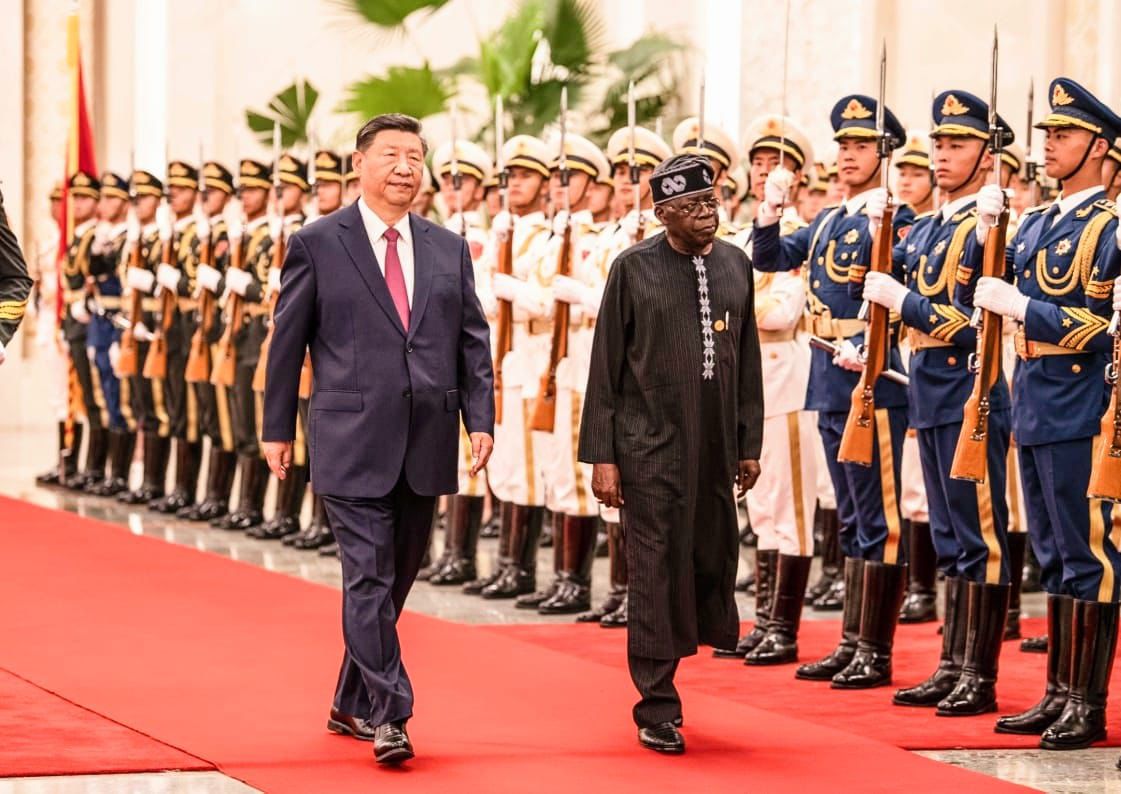In anticipation of the return of President Bola Tinubu to Abuja on Sunday, the Presidency has outlined the economic gains Nigeria stands to benefit from his trips to China and the United Kingdom.
President Tinubu, who departed Abuja on August 29, held a bilateral meeting with President XI Jinping on September, during which five Memorandum of Understanding (MoU) were signed between Nigeria and China.
Tinubu later led his delegation to another round of bilateral talks with Chinese Premier Li Qiang the following day.
On the evening of the same day, President Xi Jinping and his wife, Peng Liyuan, hosted him at the Welcoming Banquet and Cultural Gala Performance on the eve of the Forum on China-Africa Cooperation (FOCAC) Summit.
Among the MoUs signed were the Cooperation Plan between Nigeria and China, which was to jointly promote the Belt and Road Initiative, cooperation in the peaceful application of nuclear energy, and strengthening cooperation on human resource development under the Global Development Initiative.
Others were agreements on Media Exchange and Cooperation and the MoU between China Media Group and the Nigerian Television Authority (NTA).
Nigeria also signed a deal with the China Harbour Engineering Company (CHEC) to build the 68 km Lagos Green rail line, designed to run from the Lekki Free Zone to the Marina and connect with the Blue Line.
In addition, a $1 billion iron ore-to-steel project deal planned for Kogi State was also signed between Chart and Capstone Integrated Limited of Nigeria and Sinomach-He of China.
Before attending the opening of the Forum on China-Africa Cooperation (FOCAC) in Beijing, Tinubu visited two Chinese companies, Huawei and China Harbour Engineering Company (CHEC).
At FOCAC, Tinubu, as Chairman of the Economic Community of West African States (ECOWAS), delivered a paper on global peace, stressing multilateralism and cooperation as essential ingredients for international peace.
He capped his visit to China with a meeting with representatives of Nigerians in the Diaspora Organisation, China chapter, during which he spoke on the necessity of the reforms being implemented by his administration.
After his official visit to China, the President left for the United Kingdom where he met with King Charles III.
Their discussions, according to Bayo Onanuga, his Special Adviser on Information and Strategy, centred on issues related to climate change and action.




